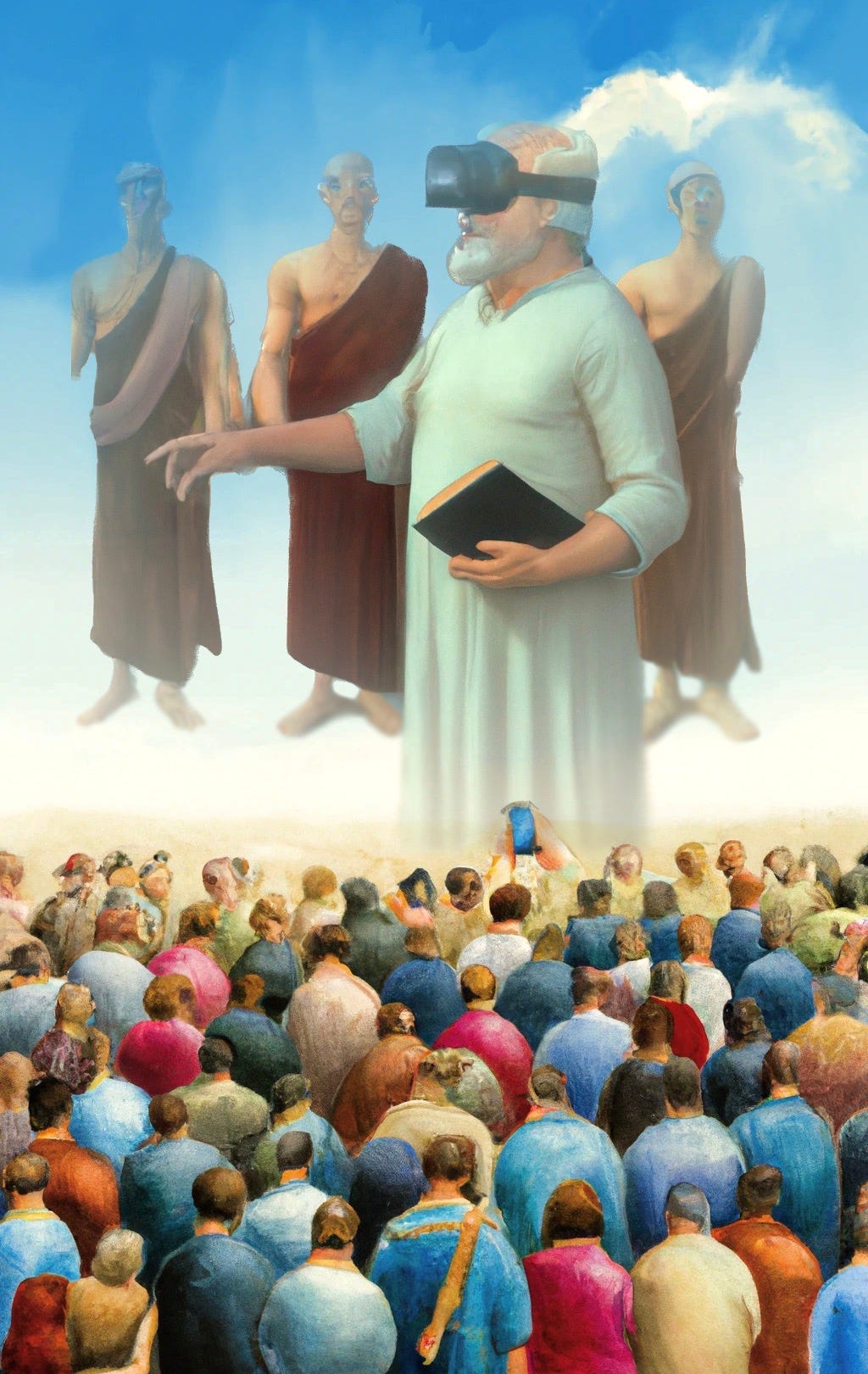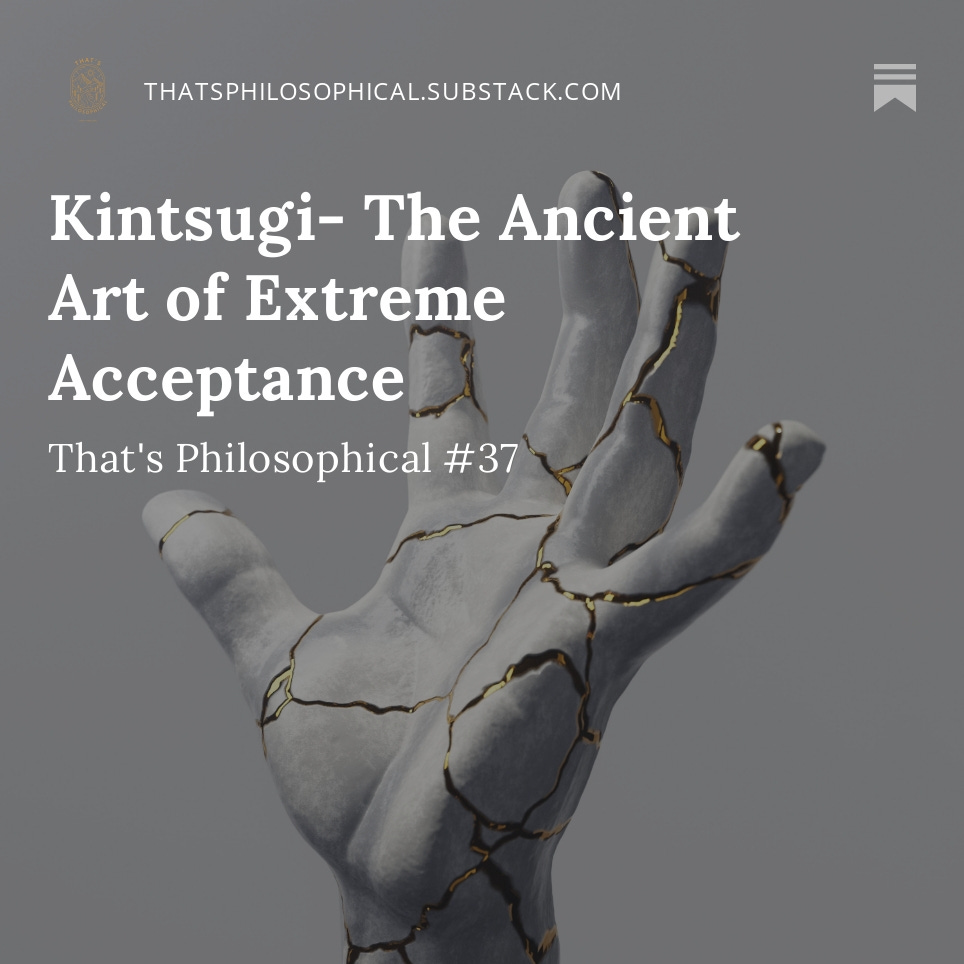Modern philosophy is weird. I am part of the problem...
That's Philosophical #43
So you decided to start learning philosophy today. One of the first things you learn is the group of certain “greatest thinkers”. They came up with concepts that guide the majority of modern philosophical discussions.
These are the authors we all “need” to read to “understand” philosophy or at least be familiar with the general trend. These greatest philosophers have helped humanity with their dedication to sharing and explaining ideas. These ideas shaped generations of other great thinkers. But here is the problem:
Your introduction to philosophy ended up being a history class. We lost focus on what philosophy actually means. We are so focused on people who wrote stuff liked by a wide range of readers and now they are considered the heart of philosophy. They aren’t.
The heart of philosophy is personal thinking.
The Invention that changed philosophy
Ancient philosophers engaged in thinking more than reading. After the invention of the printing press, books were now available to the masses. We slowly started to read more than think. Philosophy basically turned into commenting and reflecting on what we read in books. Philosophers spent less time spotting patterns in their own lives or the world around them.
French philosopher Étienne Gilson wrote that the era of philosophy is now being replaced by a science that studies philosophers. Gilson was concerned about the growing trend of reducing philosophy to a purely historical or scientific study, rather than using it as an active practice, a tool we can use to understand the world better. He noticed how we started treating philosophy as a science and not an opportunity to reflect on our own inner discussions. Philosophy became a science.
Is philosophy a science?
Unfortunately, we live in a world where if your work isn’t based on a previous big philosophical concept, then it likely won’t be taken seriously because the field heavily relies on credibility. Should thoughts have “credibility”? Should we treat every single thought equally, no matter whose mouth it comes out of? It certainly isn’t like that today, but I think it should exist in an ideal world.
This is apparent in science, where every new scientific discovery has to be based on a previous one. But is philosophy a science? Is there a start and an end to it? Is there an idea of “basic” and “advanced” philosophy?
With the introduction of scholasticism in philosophy, it became less about thinking and more about discussing somebody else’s thoughts. While this is an approach that encourages discussion, it can be dangerous for philosophy and our progress in this field.
This situation reminds me of the Buddhist approach of emptying your cup to let new knowledge in.
“In the beginner’s mind there are many possibilities, but in the expert’s there are few”
― Shunryu Suzuki
When we look at anything new with a mind full of assumptions, formed opinions, and prejudices, we are unable to understand the true idea of an argument. Modern philosophy is rarely seen through a beginner’s mind; rather, through a lens of an expert and the concepts that the “greatest thinkers” have come up with before us. Philosophy should primarily be about thinking, not reading somebody else’s thinking.
Final Thoughts
A big part of philosophy has always been debate and bouncing ideas off of each other. It’s dangerous when it becomes the field’s core. I encourage you to empty your cup. Be a child in front of every idea you see. While it is impossible to fully let go of all the preassumptions we have about life, it will benefit you greatly if you open up and allow any kind of idea get to your head. I find it funny how Buddhism has a link to almost anything I write about. Love that concept.
Shoshin is a concept from Zen Buddhism meaning beginner's mind. It refers to having an attitude of openness, eagerness, and lack of preconceptions when studying, even at an advanced level, just as a beginner would.
Thank you for reading this issue till the end, let me know if you enjoyed it with a like!






This is interesting food for thought, but I have a different perspective on this part:
>>"Unfortunately, we live in a world where if your work isn’t based on a previous big philosophical concept, then it likely won’t be taken seriously because the field heavily relies on credibility. Should thoughts have “credibility”? Should we treat every single thought equally, no matter whose mouth it comes out of? It certainly isn’t like that today, but I think it should exist in an ideal world.
This is apparent in science, where every new scientific discovery has to be based on a previous one." <<
I do not believe that science works this way at all. New scientific discoveries can indeed be new, there just needs to be evidence backing them up and other scientists/researchers must be able to replicate experiments and get the same results. There is no *requirement* that science needs to be based on previous work at all. It just turns out that when you have models/theorems/laws that work, it's easy to build on top of them and explore new avenues.
To apply this understanding of how science works to the field of philosophy, I would say that focus should not be on *who* is speaking. It is not a matter of, "Should we treat every single thought equally, no matter whose mouth it comes out of?" What matters is the *idea* presented, and the same logic of science should apply, namely can you defend the thought/idea? Is there evidence backing it up? Does it describe reality well? Is it useful? In this way it is legitimate to consider philosophy a science. If the "thought" passes rigorous questioning, then that is what should give it "credibility." It is not who said it, or that it is based on previous work, that matters.